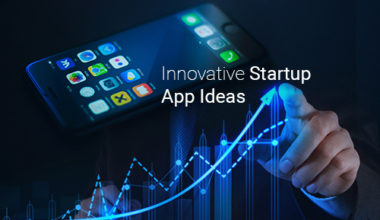
The latter half of the 20th century and the early years of the 21st century saw some major inventions and developments, among them, Blockchain stands tall as this technology has made a high impact and forever changed our environment and lifestyle through its Blockchain Healthcare App Development solutions.
Not only does this technology target payment transactions that track financial activities. Nevertheless, it can also refer to any industry seeking security. It has the ability to improve the mechanism with which we interact with each other Individuals. This demand many top Blockchain Healthcare App Development Companies a chance to provide secure and transparent blockchain solutions for the healthcare sector.
Today’s environment of health care fails to meet modern consumers’ needs. Despite moving through various fields of health care and organizations, creating accessible, high-integrity records for a patient is one of the major healthcare challenges.
See how blockchain has overcome the problems of the healthcare system, making the Medical and Healthcare App Solutions and Services better which results in taking care of patients and their outcomes.
Blockchain and AI Together For Healthcare App Development
Blockchain and Artificial Intelligence, the two cutting-edge technologies, are capable of integrating all fragmented information in real-time and generating lightweight patient-centered medical data across systems. The integrated use of data and other technologies in the medical industry has improved by both Blockchain and AI. The medical sector will improve quality, reduce costs, and control healthcare like never before with its help.

Blockchain technology’s distributed properties act as a groundbreaking way to control the complex process.
The cross-border exchange of resources and information between corporations, government agencies, and organizations is often hacked. Blockchain offers space for development in a safer way. In addition, this provides greater efficiency and reduces costs.
Artificial Intelligence and Emerging Technologies in Medicine
Let’s explore how AI along with multiple new-gen technologies is helping the healthcare sector actively and massively!
Current Statistics and Healthcare Community
Spending on Health-related is expected to rise to $8.7 trillion dollars globally by 2020 (OECD), but the same boost did not see in the improvement of taking care of patients.
It has expected that the global market of blockchain technology will be raised to US$ 2.3 billion by 2021 according to Statista (2016). This prediction is based on an annual steady 61.5% growth rate.
For instance, in 2017, blockchain was primarily used for three applications in healthcare such as:
- Audit reports that a program has licensed physicians, health care providers, and hospitals.
- Identifying and tracking drugs
- Healthcare focused on performance (network providers are paid on the basis of health outcomes for patients).
At present, many other applications, such as Electronic Health Records (EHRs), are open to providers, a supply chain network to avoid pharmacological misuse, fraud prevention, clinical trials, and the new Internet of Medical Things (IoMT) in data security.
What EHR is all about? How AI and Blockchain Both Can Support EHR?
Electronic Health Record (EHR) is a real-time digital version of a patient’s paper, which take care of the patient’s health care as a database. It is designed specifically to go beyond the health agency, which originally collects information and collaborates. EHR is handy so that it can be easily controlled, and accessed by approved clinicians and staff through more than one healthcare organization,” concluded the National Alliance for Health Information Technology.
By making data easily accessible, Blockchain technology will help the whole life cycle of a patient through EHR. Artificial Intelligence allows, instead, gaining insight from the enormous data, which the human being finds difficult to analyze. The integration of large numbers of electronic medical records and public repositories has tremendous potential.
In the area of health care, for example, each patient visit has been seen as transactions like patients visit, medication recommendations, outcomes, and other key information in the EHR. Various providers and drug stores collect all of these details on a similar record for a patient and they can gain information from each other.
Advantages of Adopting Blockchain Technology in Healthcare
Here are some of the advantages of adopting Blockchain Technology in Healthcare:
Personal Health Wallet
The blockchain itself is able to take care of safety, adaptability, and medical data flexibility in general. Patient reports are distributed through several networks controlled by different IT departments in the recent healthcare ecosystem. A personal health wallet allows the patient to have health records and maintain them easily. A patient can use a personal health wallet, usually, a physician, to share his data with someone to access and edit the data. In order to record and exchange health information with physicians, wearable devices can even connect to this wallet.
Pure Transparency in Telemedicine
Blockchain provides the patient with numerous opportunities to communicate more efficiently with physicians across geographical frontiers to deliver improved health care and promote awareness of diseases and treatments. The majority of interactions in the health care industry in mobile devices are projected to take place by 2020. The aim of transparency in the telemedicine industry is to bring value-based networking projects closer together.
Also Read: Impact of Medical and Healthcare App Development on Health Care Industry
Decentralized system
The decentralized systems will work with all the commodity hardware in the hospital. This will eradicate both man-made and even naturally occurring disasters, which provide foolproof protection. In fact, researchers can use the power saved by these devices to measure treatments, medications, and remedies for various diseases or disorders with complex tests.
Medical Research
Medical researchers worldwide can analyze information from clinical medicine and patients. This makes it easy for medical researchers to share data according to all the safety and privacy requirements. It is useful in rare diseases or drug adverse events affecting small numbers of people. Blockchain technology makes better dissemination of information possible, providing better treatment, care and study.
The integrity of Medical Records
Utilizing blockchain can be done to ensure the integrity of all medical-based records. It is because when a medical record is made, it can be held in the blockchain, so absolute proof is given since it is impossible to change the record in the blockchain.
This is a great advantage since both medical and legal considerations are important to the accuracy of a medical record.
Nonstop Monitoring & Access of Data
Blockchain for health care can be used in real-time with the aid of IoT and wearables to store and update valuable patient data such as blood pressure and sugar content. This helps doctors monitor 24* 7 patients who are susceptible to high risk and in an emergency inform & alert their caregivers and relatives.
Single Patient Identification
Differences and doubling of patient records are not so rare in health care. It also makes the task easier, as it brings new ways of manipulating the simplest data, with various schemes of different EHR.
However, all of the data has hashed into a ledger with blockchain. When you are searching for names, you find multiple addresses and keys; nevertheless, all of them express a single patient identity.
Clinical Trials
Specific drug effectiveness that treats specific diseases is determined by clinical trials. During such assessments, researchers collect and document huge statistical, trials, studies, and other information. Blockchain technology helps healthcare professionals to verify that any data recorded in the system is accurate. It provides evidence of presence by introducing transactional data and validating data on all computers connected to it. It allows data to be safely stored so that data cannot be changed under any circumstances.
Cost-Effectiveness
All third parties and mediator systems, which normally involve data collection and transfer, are excluded from Blockchain technology. The lack of this system means that the healthcare system is cost-effective.
Challenges Blockchain Technology Facing in Healthcare
Blockchain tends to have a range of advantages and applications in healthcare. Nonetheless, introducing a new technology in health care like blockchain is not going to be easy on a large scale.
Let’s see what the possible obstacles in healthcare Blockchain might be.
Uncertainty
Blockchain is relatively a new technology, which has, ups and down still, and we saw no other successful app of it apart from cryptocurrencies until now.
We do not see many good blockchain start-ups or initiatives in the field of health care that still create a feeling of uncertainty and a sense of doubt.
Data ownership
No mechanism has been developed to tell you who owns the health data and who authorizes sharing.
Cost
It is not clear how much the blockchain technology in healthcare costs are to be set and sustained. Every company finds it difficult, without knowing the actual cost, to accept this technology.
Rules & regulations
There are no regulations in the healthcare sector that control the use of blockchain technology at present.
In fact, it is unclear as to how the new healthcare blockchain rules and regulations are applied to the privacy regulations, such as HIPAA.
Storage capability
By using blockchain technology in the healthcare industry, all medical records, documents, images, and laboratory reporting are contained therein.
In fact, each participant will have his own copy conceptually. The amount of all of these files will surpass the current blockchain technology’s storage capacity, which can cause problems.
Conclusion
It is also that that blockchain implementation in health care could not be a cakewalk, as it could face serious challenges as discussed in the article. In the coming years, Blockchain will disrupt the health sector and improve the growth of the health app with blockchain.
If you are looking for a blockchain-based solution then hire Fusion Informatics as your blockchain solutions providing partner. We have developed projects for our clients successfully and that is the reason we are known as a leading Blockchain App Development Company. If you want to adopt Blockchain into your business then Fusion Informatics is your ultimate solution.




